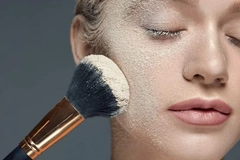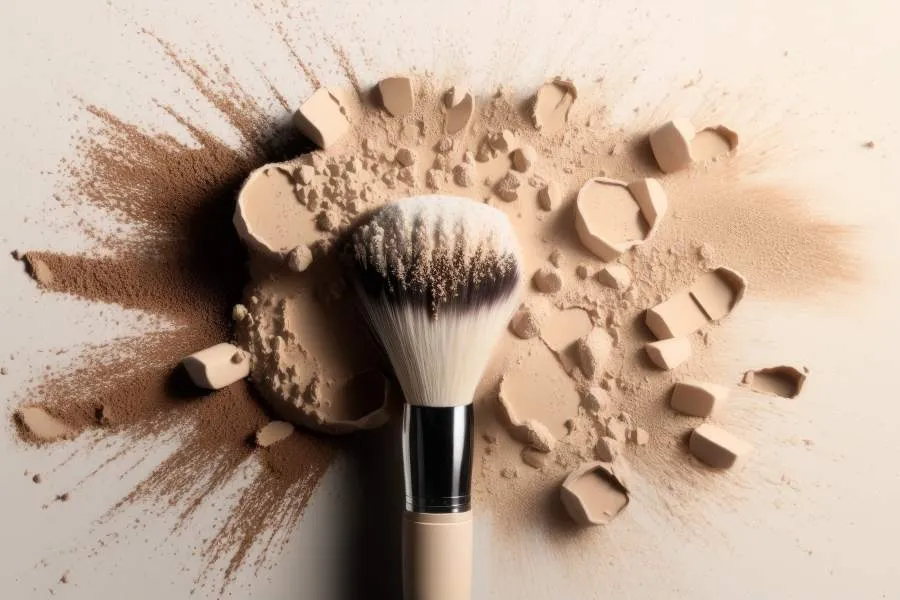US FDA withdraws proposal for mandatory asbestos testing in talc cosmetics
Key takeaways
- The FDA withdrew its proposal to require standardized asbestos testing in talc-containing cosmetics.
- The withdrawal has been met with criticism from the EWG, which emphasizes the risks of asbestos exposure in talc-based products.
- The FDA plans to issue a new rule to fulfill its obligations under MoCRA, addressing asbestos risks and improving safety measures for talc-containing cosmetics.

The US Food and Drug Administration (FDA) has withdrawn its proposal for testing talc-containing cosmetics for asbestos. The withdrawal follows an order from the Trump administration, as a part of its “Making America Healthy Again” strategy.
The proposal would have required manufacturers of talc-containing cosmetics to test the mineral for asbestos contamination before using it in products, keep records, and demonstrate compliance.
The draft was intended for cosmetics, but the FDA says it would have had consequences for other consumer products, such as drugs and food additives.
The withdrawal is being criticized by toxic watchdogs.
“The FDA’s decision to withdraw its proposed rule requiring standardized testing for asbestos in talc-based cosmetics is dangerous and irresponsible. Needlessly exposing people to asbestos in personal care products will not make Americans healthy again,” says Scott Faber, senior VP for Government Affairs at the Environmental Working Group (EWG).
Faber stresses that thousands of products containing talc can be contaminated with asbestos, which is “one of the world’s deadliest substances.”
“Tests for the presence of asbestos are the only way to ensure products made with talc are safe. Today’s action is also illegal. Congress clearly required the FDA to mandate tests for talc in cosmetics,” he says.
Controversy on health claims
The FDA’s proposal, titled “Testing Methods for Detecting and Identifying Asbestos in Talc-Containing Cosmetic Products,” was published in December last year.
The plan would have required mandatory asbestos testing in talc-containing cosmetic products, standardize talc testing among personal care manufacturers, and assure consumer safety under section 3505 of the Modernization of Cosmetics Regulation Act (MoCRA).
 The plan would have required mandatory asbestos testing in talc-containing cosmetic products.The withdrawal statement will be published in the Federal Register this week.
The plan would have required mandatory asbestos testing in talc-containing cosmetic products.The withdrawal statement will be published in the Federal Register this week.
The FDA argues that the basis of the Make America Healthy Again priorities is ensuring the safety of additives in the American food and drug supply.
The agency says there are “good causes to withdraw the proposal at this moment,” and cites receiving “highly scientific” and technical issues from public comments.
It further argues that testing for asbestos is complex and there are multiple legal implications companies would have to consider under the Administrative Procedure Act.
“We are withdrawing the proposed rule to reconsider [the] best means of addressing the issues and reduce exposure to asbestos,” writes the FDA in its official statement
The agency says it works to ensure consumers are protected from harmful asbestos exposure in cosmetics.
Known for decades
The EWG notes cosmetic companies have been aware of the risk of asbestos in talc products since the 1950s. Still, the industry persuaded the FDA to allow companies to use internal testing methods, which may not detect all asbestos fibers.
“Inhaling even the tiniest amount of asbestos in talc can cause mesothelioma and other deadly diseases, many years after exposure,” says Tasha Stoiber, senior scientist at EWG.
 The EWG notes cosmetic companies have been aware of the risk of asbestos in talc products since the 1950s.“How much talc is inhaled, and how much is contaminated with asbestos, is difficult to know, but it only takes a single asbestos fiber lodged in the lungs to cause mesothelioma decades later,” stresses Stoiber.
The EWG notes cosmetic companies have been aware of the risk of asbestos in talc products since the 1950s.“How much talc is inhaled, and how much is contaminated with asbestos, is difficult to know, but it only takes a single asbestos fiber lodged in the lungs to cause mesothelioma decades later,” stresses Stoiber.
The FDA states that although it is withdrawing the proposal now, it will issue a proposed rule to meet its statutory obligations under section 3505 of MoCRA.
Personal Care Insights attended an FDA expert-hosted panel earlier this year, where scientists discussed the dangers of talc in cosmetics ahead of the EU’s ban on talc, taking effect in 2027. The international panel voted in favor of banning the powder due to its risks to human health.
During the panel, FDA Commissioner Martin Makary also stressed that the US should follow the EU’s lead on the ban.
“Although it may not be the main driver of chronic disease, the cause of cancer in young people, or the full explanation, [talc] is highly likely contributing to it, according to the evidence presented by the panel,” said Makary.
Johnson & Johnson was recently ordered to pay nearly US$1 billion in another lawsuit against its talc-based products to the family of a woman in California, US, who passed away from mesothelioma in 2021. The family claimed that the company’s talc-based baby powder contained asbestos and caused her fatal cancer.
According to the Lawsuit Information Center, Johnson & Johnson is currently facing over 67,000 pending talc-related lawsuits throughout the US.













